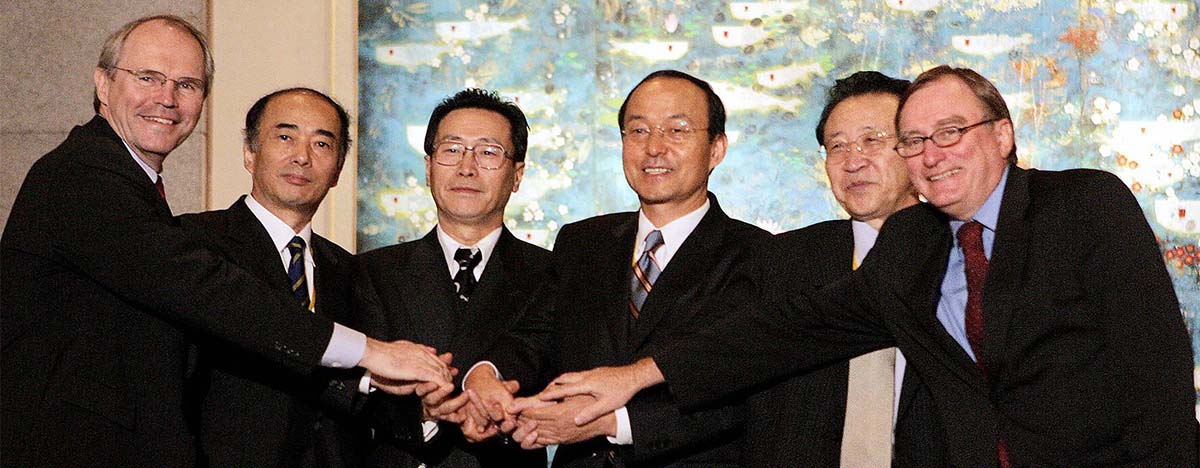
Living History with Ambassador Christopher Hill
Negotiating the Six Party Talks and Dealing with North Korea’s Nuclear Program
In 2003, the Six Party Talks were launched to seek a peaceful resolution to the challenges posed by North Korea’s nuclear weapons program. The Six Party Talks were designed to be a multilateral mechanism for negotiations with all the relevant stakeholders in the region. The participating states included China, South Korea, North Korea, the United States, Japan, and Russia.
Listen to full Living History
In this Living History video, Ambassador Christopher Hill reflects on his personal experience as Assistant Secretary of State for East Asian and Pacific Affairs and head of the U.S. delegation to the Six Party Talks from 2005 to 2009.
Six rounds of talks took place in Beijing from August 2003 through September 2009 and during the negotiations several important documents were adopted. One of the most important of these documents was the September 19, 2005 Joint Statement that outlined a “step-by-step” process intended to pave the way toward denuclearization of the Korean Peninsula.
The most important part of the September [2005] joint statement was that North Korea agreed to abandon all of their nuclear programs, not just nuclear weapons, but all of their nuclear programs.”
Subsequent agreements were reached in 2007 and 2008 that froze and dismantled elements of the DPRK nuclear program. The agreements sought to obtain operating records and sample reactor parts from North Korea’s nuclear facilities, and eventually led to the destruction of the cooling tower at Yongbyon nuclear complex. But further implementation of the agreement was impeded by the North’s unwillingness to agree to a verification protocol for their nuclear declaration. 
Documents Library

[carousel-horizontal-posts-content-slider-pro id='113']